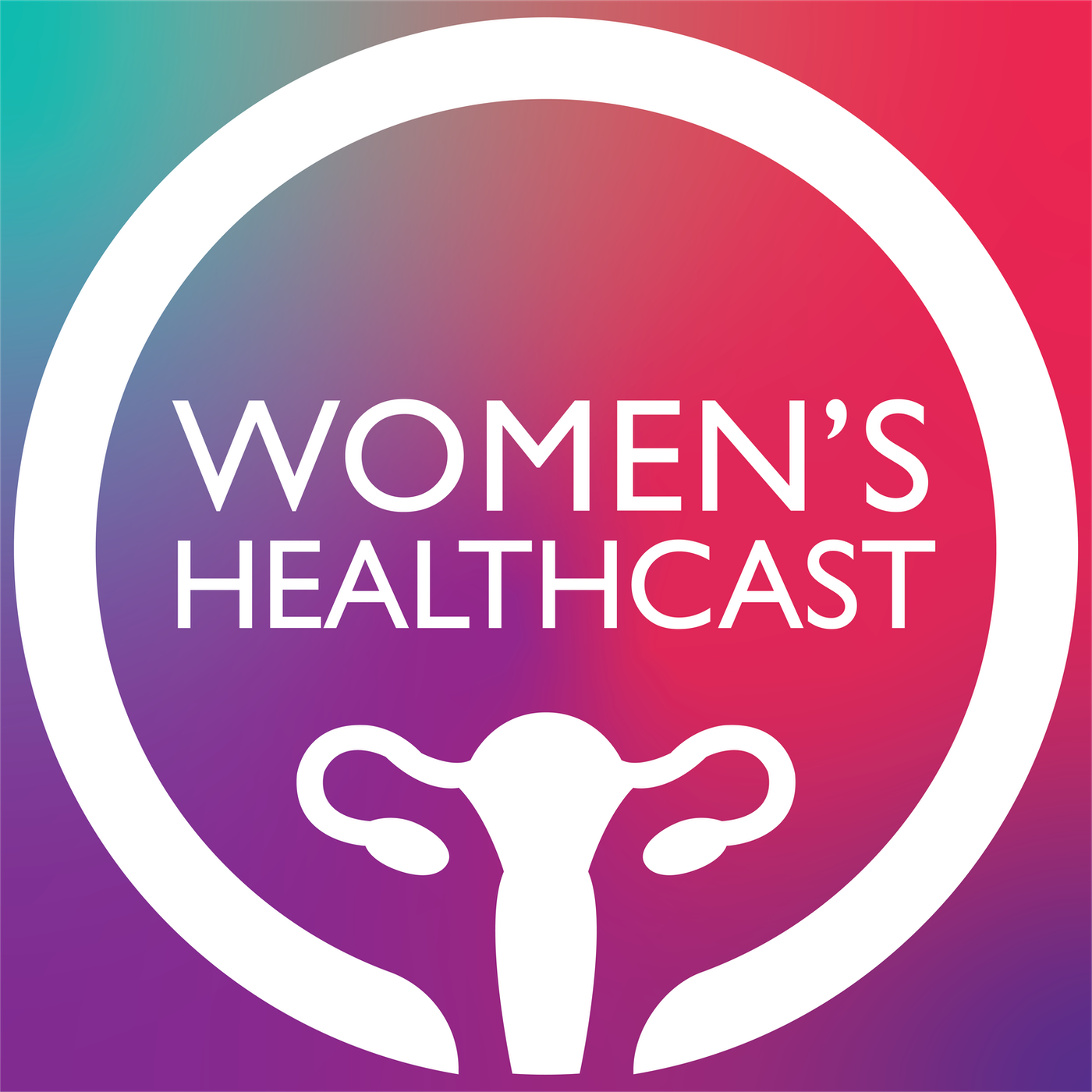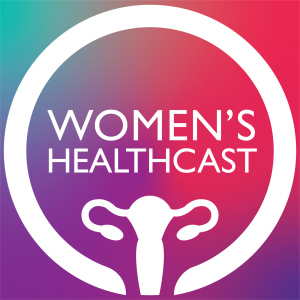
186.9K
Downloads
128
Episodes
The latest on ob-gyn health issues and innovations, from the University of Wisconsin-Madison Department of Obstetrics & Gynecology. obgyn.wisc.edu
The latest on ob-gyn health issues and innovations, from the University of Wisconsin-Madison Department of Obstetrics & Gynecology. obgyn.wisc.edu
Episodes

Tuesday Dec 23, 2025
Health and Aging: Weight and Wellness, Part 2
Tuesday Dec 23, 2025
Tuesday Dec 23, 2025
Over the last few months, the Women’s Healthcast has focused on how aging can affect our health. For the last two episodes in the Health and Aging series, we consider the impact of aging on metabolism – including societal implications.
In Weight and Wellness, Part 1, Dr. Kate Sample joined us to talk about how different life stages can affect body composition. In the second half of our conversation, Dr. Sample discusses additional options for improving health with age, the potential impacts of GLP-1 medications, and how to tell whether so-called “simple” solutions on social media are actually effective.
Have a suggestion for a future episode? Let us know what health issues you'd like to learn about here! https://forms.gle/XaoArBtnxfHxA4Up7

Wednesday Dec 17, 2025
Health and Aging: Weight and Wellness, Part 1
Wednesday Dec 17, 2025
Wednesday Dec 17, 2025
Over the last few months, the Women’s Healthcast has focused on how aging can affect our health. For the last two episodes in the Health and Aging series, we consider the impact of aging on metabolism – including societal implications.
Dr. Kate Sample joined us to share her insight into changes in body composition that come with age. Dr. Sample is a clinical associate professor in the University of Wisconsin Department of Obstetrics and Gynecology. In part one of this interview, she talked about natural changes in weight, muscle mass, and bone density that come with age, the effects of life stages such as pregnancy and menopause on metabolism, as well as how hormonal changes affect our bodies.
Have a suggestion for a future episode? Let us know what health issues you'd like to learn about here! https://forms.gle/XaoArBtnxfHxA4Up7

Wednesday Dec 03, 2025
Health and Aging: Protect Your Pelvic Floor
Wednesday Dec 03, 2025
Wednesday Dec 03, 2025
For the last few months, the Women’s Healthcast has been taking a look at health and aging, covering everything from perimenopause to sex to heart health. In our second-to-last episode of the Health and Aging series, we’ll focus on an all-important but sometimes under-appreciated group of muscles in the body: the pelvic floor.
This complex basket of muscles and connective tissue sits under the pelvis, supporting our organs and helping manage important bodily functions like going to the bathroom, having sex, giving birth, even standing and sitting. Repeated stress, pregnancy and birth, hormone changes, and more can all affect how well our pelvic floor functions.
Maureen Sheetz is a nurse practitioner in the Division of Urogynecology and Reconstructive Pelvic Surgery in the University of Wisconsin Department of Obstetrics and Gynecology. Maureen joined this episode of the Women’s Healthcast to talk about how to tell if you’re experiencing common pelvic floor issues like incontinence and pelvic organ prolapse, the range of treatment options available for these conditions, and how to protect our pelvic floor health as we age.
Have a suggestion for a future episode? Let us know what health issues you'd like to learn about here! https://forms.gle/XaoArBtnxfHxA4Up7

Thursday Nov 13, 2025
Health and Aging: Heart Health
Thursday Nov 13, 2025
Thursday Nov 13, 2025
Cardiovascular disease – things like heart disease and high blood pressure – can have huge impacts on our overall health. For women in particular, life events like pregnancy and menopause can raise our risk of cardiovascular disease.
Dr. Anupama Joseph joined this episode of the Women’s Healthcast to talk about heart health and aging. Dr. Joseph is an assistant professor of cardiovascular medicine in the University of Wisconsin Department of Medicine. She talked about how to recognize common signs and symptoms of cardiovascular disease and what we need to know about improving our heart health.
Let us know what aging-related topics you want to know more about in this survey: https://forms.gle/XaoArBtnxfHxA4Up7

Wednesday Oct 22, 2025
Health and Aging: Let’s Talk About Sex, Part 2
Wednesday Oct 22, 2025
Wednesday Oct 22, 2025
A lot about our lives can change as we get older, and that includes our sex lives. Our last episode covered some of the physical changes that can impact sex as we age. For this episode, Madelyn Esposito joins the Women’s Healthcast to talk about the mental and emotional aspects of sex and aging.
Madelyn is a licensed sex therapist and program manager of UW Health’s Sexual Health Clinic. She answered questions about what sex therapy is, common changes to mental and emotional health that impact sex, and what she wishes more people knew about sex and aging.
Let us know what aging-related topics you want to know more about in this survey: https://forms.gle/XaoArBtnxfHxA4Up7

Wednesday Oct 08, 2025
Health and Aging: Let's Talk About Sex, Part 1
Wednesday Oct 08, 2025
Wednesday Oct 08, 2025
For the next few months, the Women’s Healthcast will dive into all aspects of aging and women’s health, through conversations with experts in the UW Department of Obstetrics and Gynecology and beyond.
A lot about our lives can change as we get older, and that includes our sex lives. Two guest experts joined this episode of the Women’s Healthcast to talk about some of the physical changes related to age that can impact sexual function – and to tear down the myth that sex and aging aren’t compatible.
Dr. Jon Pennycuff is a urogynecologist and assistant professor in the UW Department of Obstetrics and Gynecology, and Dr. Javier Santiago is a urologist and assistant professor in the UW Department of Urology. We talk about common changes in sexual function for female and male bodies, as well as their recommendations for improving sexual health.
Let us know what aging-related topics you want to know more about in this survey: https://forms.gle/XaoArBtnxfHxA4Up7

Wednesday Sep 10, 2025
Health and Aging: Gynecologic Cancer
Wednesday Sep 10, 2025
Wednesday Sep 10, 2025
For the next few months, the Women’s Healthcast will dive into all aspects of aging and women’s health, through conversations with experts in the UW Department of Obstetrics and Gynecology and beyond.
Since September is Gynecologic Cancer Awareness Month, Dr. Catherine Zhang joined the Women’s Healthcast to help us learn about how our gynecologic cancer risk changes with age. She talked about common types of gynecologic cancer, signs and symptoms to look out for, the most up-to-date screening recommendations, and ways to reduce your risk of gynecologic cancer.
Let us know what aging-related topics you want to know more about in this survey: https://forms.gle/XaoArBtnxfHxA4Up7

Wednesday Aug 27, 2025
Health and Aging: Perimenopause
Wednesday Aug 27, 2025
Wednesday Aug 27, 2025
For the next few months, the Women’s Healthcast will dive into all aspects of aging and women’s health, through conversations with experts in the UW Department of Obstetrics and Gynecology and beyond.
And what better topic to kick off this series than perimenopause? For those of us who get periods, we know this phase of life is coming eventually.
Dr. Laura Bozzuto joined this episode of the Women’s Healthcast to help us learn about the common signs and symptoms of perimenopause, treatment options, why the supplements you see online might not be the solution, and exciting updates in the future of perimenopause and menopause care. Dr. Bozzuto is an assistant professor in the UW Department of Ob-Gyn.
Menopause Practitioner Database - The Menopause Society
Let us know what aging-related topics you want to know more about in this survey: https://forms.gle/XaoArBtnxfHxA4Up7

Wednesday Aug 13, 2025
Introducing the Health and Aging miniseries
Wednesday Aug 13, 2025
Wednesday Aug 13, 2025
It’s no secret that our bodies change as we age, and how we care for them might need to change, too. How many of us feel like we have all the information we need to stay healthy as we get older?
For the next few months, this podcast will dive into all aspects of aging and women’s health, in conversation with experts from the University of Wisconsin School of Medicine and Public Health Department of Obstetrics and Gynecology and beyond. Join us for episodes about:
- Perimenopause and menopause care
- Bone health and gynecologic cancer
- Gynecologic cancer risk
- Sex and aging
- Pelvic floor disorders
- Cardiovascular health and aging
- Metabolism, age, and weight
We hope you’ll listen along with us as we explore women’s health and aging for the rest of this year. Let us know what aging-related topics you want to know more about in this survey: https://forms.gle/XaoArBtnxfHxA4Up7
Thanks for listening to the Women’s Healthcast, from the University of Wisconsin Department of Obstetrics and Gynecology.

Wednesday Jul 30, 2025
Reproductive Autonomy in 2025
Wednesday Jul 30, 2025
Wednesday Jul 30, 2025
Reproductive autonomy is defined as an individual’s ability to make decisions about their reproductive health and access reproductive health services without interference or coercion. In 2025, there are a lot of social and policy factors at play that impact people’s reproductive autonomy both in the U.S. and worldwide.
Dr. Leigh Senderowicz and Amy Williamson joined this episode of the Women’s Healthcast to help us understand the reproductive autonomy landscape in 2025. This interview was recorded in June of 2025.
Dr. Senderowicz is an assistant professor in the Departments of Obstetrics and Gynecology and Gender and Women’s Studies at the University of Wisconsin. Amy is the associate director of the UW Collaborative for Reproductive Equity, a group that conducts research and shares evidence that focuses on Wisconsinites’ access to abortion and contraception.
Past podcast episodes mentioned in the interview:
Have a suggestion for a future episode? Let us know what health issues you'd like to learn about here! https://forms.gle/XaoArBtnxfHxA4Up7
